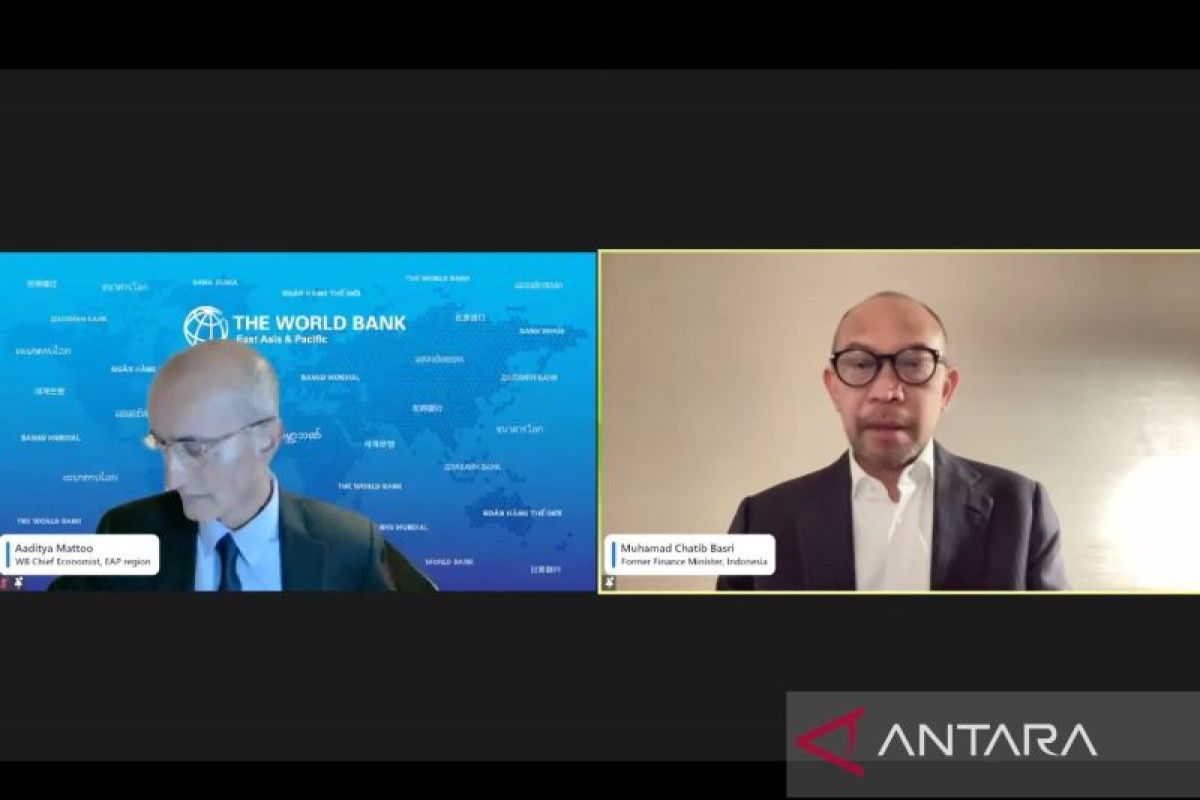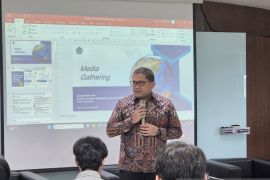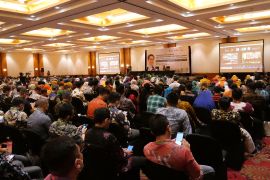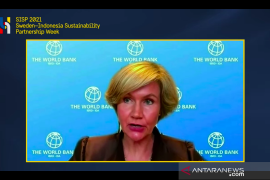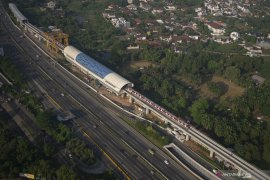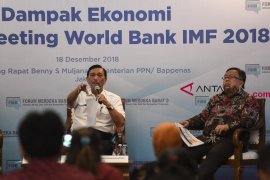Developing countries in East Asia and the Pacific include Indonesia, Cambodia, China, Laos, Malaysia, Mongolia, Myanmar, Papua New Guinea, the Philippines, Thailand, Timor-Leste, Vietnam, and Pacific Island countries.
"Bold policies to unleash competition, improve infrastructure, and reform education can revitalize the region's economy," World Bank chief economist for East Asia and the Pacific, Aaditya Mattoo, said on Thursday.
He made the statement at the launch of the East Asia and Pacific Economic Update report, which was followed online from Jakarta.
In its report, the World Bank noted that the per capita income in the East Asia and Pacific region has shown faster growth compared to developing countries in other regions.
Economic growth in developing countries in East Asia and the Pacific, excluding China, is projected to increase to 4.6 percent this year from 4.4 percent in 2023.
However, this outlook is still faced with a number of challenges, such as a larger-than-expected global economic slowdown, rising long-term interest rates in major countries, increasing economic policy uncertainty around the world, and rising geopolitical tensions.
Related news: APEC meeting focuses on quality growth in Asia-Pacific
Meanwhile, economic growth in the East Asia and Pacific region is driven more by investment than productivity growth.
The World Bank has recommended that countries in the region focus on efforts to encourage increased productivity.
Indonesian minister of finance for 2013–2014, Chatib Basri, agreed with the recommendation. According to him, one of the challenges to keeping Indonesia's growth relatively stable at 5 percent is that the level of productivity is still relatively low.
He argued that one of the policies that the Indonesian government needs to take to achieve economic growth of 6–7 percent is to encourage productivity by increasing human resource (HR) and infrastructure development as well as strengthening good governance.
On a separate occasion, Minister of Finance Sri Mulyani Indrawati said that the 2024 State Budget (APBN) is focused on supporting inclusive and sustainable economic transformation toward a developed Indonesia.
The strategy includes a commitment to building a foundation for quality human resources, infrastructure, and other reforms.
Efforts to improve the quality of human resources are being realized through the allocation of education funds amounting to Rp660.8 trillion (US$41.6 billion) and a health budget of Rp187.5 trillion (US$11.8 billion) in the 2024 APBN. Meanwhile, the budget allocation for infrastructure is Rp422.7 trillion (US$26.6 billion).
Related news: Indonesia's financial system stays strong amid global uncertainties
Related news: OJK projects solid growth for Indonesia with maintained core inflation
Translator: Imamatul Silfia, Cindy Frishanti Octavia
Editor: Yuni Arisandy Sinaga
Copyright © ANTARA 2024
